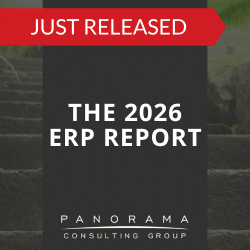In any ERP implementation, it is generally understood that training is a key component of organizational change management and of the overall success of the ERP implementation. However, there is a subtle and distinct difference between training and training effectively.
ERP training programs often, and erroneously, focus on transactional training. ERP software companies and implementation teams are generally good at creating documentation and delivering training that teaches people how to complete transactions in the system. However, running a business entails much more than merely completing transactions within a software program.
Instead, ERP training programs should focus on new business processes as the foundation. In fact, ERP is relatively irrelevant to these new training programs. Granted, ERP is an enabler of new business processes, but the software should certainly not be the exclusive focus of a pre-go-live ERP training program.
Conversely, these training programs should teach employees how to perform their business processes and workflows in the new environment. It is important for ERP training programs to deliver knowledge in the context of how employees perform their day-to-day jobs, not simply how to complete transactions in a system.
For example, transactional training would focus on how to create a purchase order in a system. While this transaction is important to understand in a new system, it does not address the business rules behind the PO: who will approve it, what will happen after the PO is approved, how are orders received against the PO, etc. It is these business processes that employees need to understand, not just the transactions in the system.
ERP projects can go a long way toward making adoption easier if they focus on effective training that deliver business process and workflow training, in addition to ERP transactional training. This type of process-focused training should be a centerpiece of any ERP organizational change management program.












